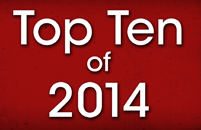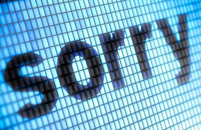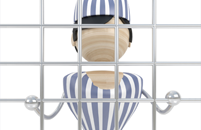Articles by Category
Articles by Issue
Recent Comments
- Stephen Brodsky on Harming Children: Uncovering and Overcoming Bias When Defending Sex Crimes Against Children
- Laura on Courtroom Attire: Ensuring Witness Attire Makes the Right Statement
- Members selection — Court-Martial Trial Practice Blog — February 22, 2014 on Why Do We Ask Jurors To Promise That They Will Do the Impossible?
- Video: Pryor Greed and Lawyers | Parents Rights Blog on Ethical Issues in Racial Profiling
- On the relationship between ideological and demographic diversity on Inaccuracy in Political Self-Perception: Young Adults Are Not as Conservative as They Believe
- Taylor Bishop on Tips for Preparing the Expert Witness
- Thanks for stopping by…. « The Jury Room on Book Review- Social Media as Evidence: Cases, Practice Pointers, and Techniques
- Thanks for stopping by…. « The Jury Room on Book Review: The Juror Factor: Race and Gender in America’s Civil Courts
Case Narrative Archive
-
Jury Decision-making in Excuse Defense Cases: A Novel Methodological Approach
by Christopher S. Peters, Ph.D. and James Michael Lampinen, Ph.D.Posted on December 1, 2015 | 1 CommentAs you plan the structure of your case narrative, here's a novel idea for figuring out what prospective jurors find most intriguing about your case. These researchers used a card sort task to have jurors identify which aspects of the case they wanted to hear about first. It's an intriguing look at case presentation planning. -
Why Women Stay Quiet at Work, But Not in the Jury Room
by Suann Ingle, MSPosted on February 27, 2015 | 3 CommentsWhat might we be doing better in the jury room than we are in the workplace? Suann Ingle thinks we might be better at helping women participate in discussions. -
The Psychology of a Persuasive Settlement
by Ken Broda-Bahm, Ph.D.Posted on February 27, 2015 | 9 CommentsWhy doesn't the other side want to settle? Let Ken Broda-Bahm show you just some of the reasons. -
Top Ten Most Accessed Articles in 2014
by Jury Expert Editorial StaffPosted on February 27, 2015 | No CommentsWhat did your friends and colleagues read most often in 2014 in The Jury Expert pages? Take a look and make sure you are keeping up! -
“Mea Culpa” in the Courtroom: Apology as a Trial Strategy
by Kevin Boully, Ph.D.Posted on February 27, 2015 | 2 CommentsHere's a review of the literature on apology. What makes a good apology in the courtroom? Ask Kevin Boully. -
Anti-war Protestors and Civil Disobedience: A Tale of Two Juries
by Lynne Williams, Ph.D., J.D.Posted on November 26, 2014 | 4 CommentsHow do you choose a jury for a antiwar protestor trial versus a jury for a civil disobedience trial? An experienced trial consultant offers a peek into her brain as she chooses two very different juries. -
The Selective Allure of Neuroscience and Its Implications for The Courtroom
by Adam B. Shniderman, Ph.D.Posted on November 26, 2014 | 2 CommentsNeuroscience evidence is not alluring to everyone. Just to some. Thorough voir dire becomes critically important to the attorney who wants to understand those composing a jury. -
Promoting Communications between Social Scientists and Lawyers
by Ronald K. Bullis, Ph.D., J.D.Posted on November 26, 2014 | 1 CommentLawyers and social scientists. Different professions. Different languages. Different professional cultures. How do you talk so your social science expert witness understands you? -
If It Feels Bad to Me, It’s Wrong for You: The Role of Emotions in Evaluating Harmful Acts
by Ivar Hannikainen, Ph.D. and Ryan Miller and Fiery Cushman, Ph.D.Posted on August 20, 2014 | No CommentsAuthored by Ivar Hannikainen, Ryan Miller and Fiery Cushman with responses from Ken Broda-Bahm and Alison Bennett, this article has a lesson for us all. It isn’t what that terrible, awful defendant did that makes me want to punish, it’s how I think I would feel if I did that sort of terrible, horrible awful thing. That’s what makes me want to punish you. It’s an interesting perspective when we consider what makes jurors determine lesser or greater punishment. -
Novel Defenses in the Courtroom
by Shelby Forsythe and Monica K. Miller, J.D., Ph.D.Posted on August 20, 2014 | 1 CommentAuthored by Shelby Forsythe and Monica K. Miller, with a response from Richard Gabriel. This article examines the reactions of research participants to a number of novel defenses (Amnesia, Post-Traumatic Stress Disorder (PTSD), Battered Women Syndrome (BWS), Multiple Personality Disorder (MPD), Post-Partum Depression (PPD), and Gay Panic Defense) and makes recommendations on how (as well as whether or not) to use these defenses.









